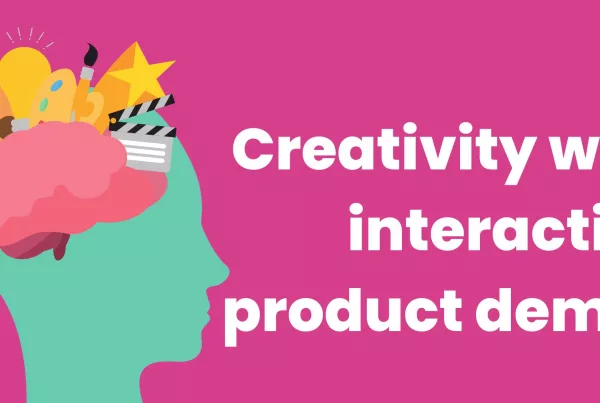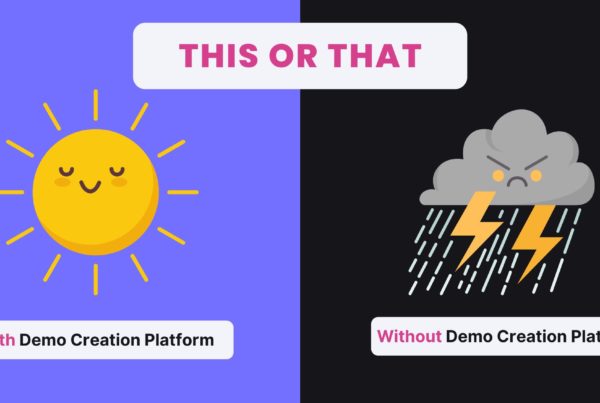Once upon a time, there was a product marketing manager at a SaaS company. Every day, she worked hard to tell potential buyers why her company’s products were different than anything on the market—cooler, faster, easier to use, and a better value for their money.
But it was hard work.
Product marketers have two challenging tasks in their role: bringing the product to life externally, and bringing the voice of the customer to life internally.
Tech-savvy buyers with super high expectations wanted to hear a story about why the product is different, learn how it could solve their problems, and get their hands on the product itself, all in the very beginning of the sales cycle.
And she never had quite enough internal resources on hand to help her succeed. Her product team was amazing, and they worked well together, but they weren’t storytellers. They were, however, super busy building products, and her priorities often got pushed to the side.
Friction in product & feature launches
When new product features were launched, her attempts at getting the appropriate assets for use in promotional materials was another struggle.
Here’s how most of her conversations with the product team went:
“We’re so close to launching that new product—can I get a quick demo so I can figure out how to translate the product specs into customer value to help sell it?”
“Oh… we don’t have one yet. And we probably won’t for a while.”
“And we’ve got those new features for our existing product—can I at least see some screenshots of them?”
“Sorry, we’re still swamped with the launch and can’t get to it yet.”
It was understandable—the product team was busy building some incredible features and launching innovative products and simply didn’t have enough time to do it all.
But the PMM was constantly behind because she was totally dependent on the product team, and that was stressing everyone out.
“There must be an easier way to get people into the product without a traditional live sales demo for each prospect,” she thought. “And a better way to tell current customers about new features that add value for them, and even help us upsell.”
How a Demo Creation Platform Changed Everything
One day, she stumbled on a free trial of a demo creation platform.
Demos are usually the realm of solutions engineers, but she was curious about putting a few interactive product demos on the company website to see if they would spark some more interest (and maybe even let prospects self-qualify).
She explored hesitantly at first—she didn’t know how to code and wasn’t sure she’d be able to put together a demo without that technical knowledge.
But the demo creation platform she chose was code-free (just like Reprise) and making her first demo only took about 30 minutes.
The second one took only 15 minutes.
And the third was even faster.
She tried out a few different narratives and features and created a mini-guided demo telling the story of one of their products that could use a little more love. That demo walked new prospects through the highlights and delightful moments of the product, with nothing extraneous or boring.
The demo creation software let her do exactly what she loved doing as a product marketing manager—telling product stories and translating the vision of the product team into a compelling hook for the market. She could capture the product in real-time and translate it into a story without any friction.
After all, she was in a unique role: product marketers understand both the product and the day-to-day of the people using it. Creating demos with that knowledge was powerful.
Plus it took the pressure off her and the product team at the same time—she didn’t need to wait for them to deliver screenshots or demos to her, and they could focus on their own work too.
Creating a Winning Product Demo
She added that first demo to the website to see how it performed. The demo creation platform she chose allowed her to view sophisticated analytics about how users interacted with the demo so she could see exactly what resonated and what they skipped.
She used this data to keep refining that first demo, and then to create another demo based on that info, and then a third, and then a few more. (It’s a little addictive!)
Until finally, one day the website had self-serve interactive demos in a whole bunch of different locations, each one highlighting a different product or feature.
- Buyers were thrilled because they could explore and self-educate to their hearts’ content.
- Current customers had easy access to a page full of interesting, helpful guided demos of new features as they were released.
- The product team had more time for their own work.
- The PMM could self-serve and create her own awesome demos as she needed, friction-free.
Demo creation platforms aren’t just for sales and presales teams—they have huge value for product marketers as well.
Choosing the Right Demo Creation Platform
There are quite a few interactive product demo software companies out there that can help unblock your product marketing team. But only Reprise lets you create both guided self-serve demos and live sales demos (your SE team will love it as well, so you can spread out both the costs and the benefits).
And Reprise offers sophisticated, easy-to-use analytics so you can pinpoint exactly what’s working in your demo and where you can make improvements based on user actions.
Is Reprise the best demo creation platform for your product marketing team? We’ve got your complete guide to that question.






